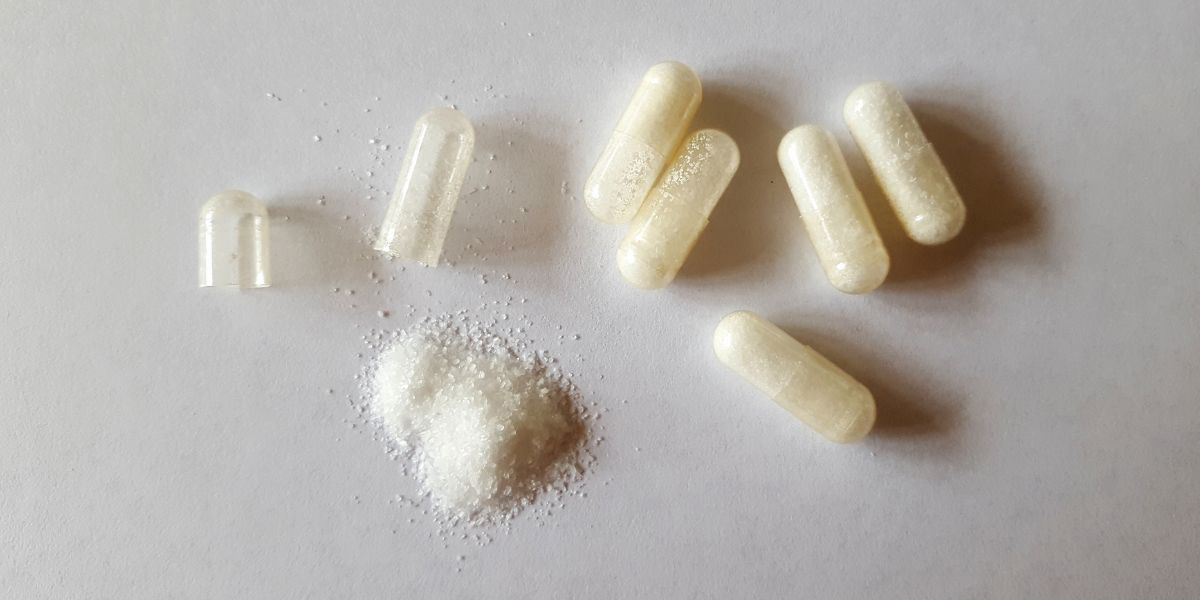Phenibut Dangers and Side Effects


Medical Writer:
Reviewer:

Johnny Kim
Executive Psychotherapist
Medical Writer:
Reviewer:

Johnny Kim
Executive Psychotherapist
Phenibut, scientifically termed β phenyl γ aminobutyric acid, is a synthetic drug that lowers anxiety, boosts cognitive abilities, and enhances sleep. Russia created phenibut in the 1960s, and it is now sold in the United States as a health supplement.
They created it for its healing properties. These properties can help with social anxiety, tension, depression, and post-traumatic stress. Medical professionals in Russia and some Eastern European countries still prescribe it for conditions like schizophrenia and Parkinson’s disease.
Table of Contents
Toggle
What Is Phenibut?
Known to chemists as β phenyl γ aminobutyric acid, phenibut is a synthetic tranquilizer and a nootropic substance. Nootropics are cognitive enhancers. Whether natural or artificial, they are drugs claimed to enhance your mental functions. People use substances like phenibut to try to improve their thinking and awareness.
Phenibut is usually a white powder. You can purchase it in loose form, as pills, or as a liquid solution for consumption.
Its quality varies because buyers purchase it from sellers in countries with unregulated manufacturing laws. The sellers don’t adhere to any standard, and there is no quality control. Therefore, because of its lack of regulation, it can potentially lead to dependency and phenibut addiction.
While possessing phenibut remains legal in the United States, it serves no medical purpose. The Food and Drug Administration (FDA) has not approved it as a dietary supplement, but many sellers still market it under different names.
They market phenibut under several different names, including:
- Beta-(Aminomethyl)hydrocinnamic acid
- β-(aminomethyl)benzenepropanoic acid
- 4-Amino-3-phenylbutanoic acid
- β-phenyl-γ-aminobutyric acid
- P-Butyric acid
- Anvifen
- Fenibut
- Brain booster
- Noofan
- Phenigamma
- Phenygam
- Phenigam
- PhGaba
Where is Phenibut Sold?
Online retailers mainly sell phenibut, but certain health stores also carry it. Companies often market it as a supplement for workouts, studying, or improving mood.
What Does Phenibut Do?
Phenibut, at higher doses, exerts a sedative effect, leading to relaxation, calmness, and euphoria. Some websites falsely advertise it as a “safe” alternative to Xanax and Valium. They claim it can alleviate anxiety, insomnia, and tension. This claim is incorrect and dangerous despite the similarities in their initial effects.
Some people have noticed that taking less phenibut can have similar effects to stimulants, like increased alertness and concentration. The intensity and duration of these effects differ among users, depending on the amount consumed.
Phenibut resembles gamma-aminobutyric acid (GABA), which readily passes through the blood-brain barrier, impacting amino acid neurotransmitters and biochemical processes. phenibut attaches to receptors in the body, increasing tolerance. More doses are needed over time to keep getting the same effects.
Phenibut affects the speed and strength of signals in the brain and central nervous system. This can cause feelings of pleasure.

Side Effects
Numerous people combine phenibut supplements with various substances, complicating the identification of side effects specific to phenibut. Some common symptoms have been found in people who experienced side effects and sought medical help for severe reactions.
The side effects associated with phenibut include:
- Headaches
- Anxiety
- Irritability
- Dizziness
- Nausea
- Elevated heart rate
- Impaired coordination
- Balance difficulties
- Dehydration
- Respiratory depression
- Symptoms resembling a hangover
- Intense sleepiness
- Rashes
- Itching
- Swollen face
- Feeling disoriented
- Twitching muscles
Mixing phenibut with alcohol or opioids increases the chances of a phenibut overdose, coma, or even death due to the depressant effects.
Long-Term Effects of Phenibut
Dependence and addiction are widely recognized as long-term consequences of phenibut. Research on this drug has mostly been done on animals or in countries with different medical standards. This has limited our full understanding of its long-term effects.
A person at the University of Michigan told researchers they needed higher doses of phenibut soon after starting. They also experienced severe withdrawal symptoms when they didn’t take it regularly.
Experts say that using phenibut for a long time can cause more depression, memory loss, and cognitive issues. This is because phenibut is similar to gabapentin, which affects the GABA receptors in the brain. Research has shown that prolonged use of phenibut may cause these harmful effects. Damage to organs and nerves is also a probable result of sustained phenibut consumption.
Phenibut Withdrawal Symptoms
Withdrawal symptoms from phenibut vary among individuals. Some may encounter more psychological than physical symptoms, or the reverse, while others may only undergo mild withdrawal effects.
A detailed report showed that someone experienced intense mental and physical symptoms from stopping phenibut for nine weeks.
Symptoms of withdrawing from phenibut can consist of:
- Mental confusion
- Detachment from reality
- Irritability
- Anxiety
- Depression
- Muscle twitching
- Constipation
- Abdominal pain
- Excessive sweating
- Difficulty concentrating
- Abnormal heart rhythm
- Paranoia
- Hallucinations
- Intense desire for the drug
- Acute psychosis
Taking phenibut with other substances or drugs can make withdrawal symptoms worse, especially for people who have problems with substance use disorders. Such cases may require a detox process supervised by medical professionals.
Phenibut Dangers
The primary risk with phenibut is the ease of transitioning from desired effects to acute toxicity. The danger is compounded by its unregulated status and ready availability, causing uncertainty about product quality.
Between 2009 and 2019, there was an increase in medical emergencies associated with phenibut reported by the Centers for Disease Control and Prevention (CDC), resulting in fatalities. Many phenibut-related incidents may not be reported accurately. This is because people in healthcare settings might not seek medical help. Misdiagnosis is possible for this less familiar drug, particularly when combined with other substances or alcohol.
Using phenibut to self-treat mental health issues or academic stress is risky. It could worsen symptoms or lead to more complicated disorders that are hard to control.
As phenibut becomes more popular, researchers are finding new risks associated with its long-term use.

Treatment for Phenibut Addiction
If you or someone you know is struggling with phenibut dependence and addiction or substance abuse, White Oak Recovery Center (WORC) can help. Don’t hesitate to reach out for support. WORC provides compassionate treatment for substance use and co-occurring mental health disorders.
You are not alone in this journey. WORC provides evidence-based addiction treatment and supportive care for those in need. Our residential treatment facility helps patients learn essential skills for healing and life-long recovery.
WORC also provides on-site medical detox to help ease discomfort and difficulties during the detox process. Our skilled professionals work with you to make a personalized treatment plan that fits your needs.
Contact a treatment specialist today. Your journey towards recovery can start with just a phone call.

Am I covered for addiction treatment?
Your insurance may cover treatment. Call now for an entirely free and confidential assessment. Recovery starts with a phone call.

- Lapin, Izyaslav, “Phenibut (β-Phenyl-GABA): A Tranquilizer and Nootropic Drug.” CNS Drug Reviews, Jun. 2006.
- “Phenibut in Dietary Supplements.” U.S. Food and Drug Administration, Jul. 2023.
- “Phenibut Exposures Reported to Poison Centers – United States, 2009-2019.” Centers for Disease Control and Prevention, Sep. 2020.
- Journey, Edward “Phenibut, The Russian Cosmonaut Drug You Can Buy Online to Reduce Anxiety.” University of Michigan, Department of Psychiatry, Oct. 2020.
Medical Disclaimer:







